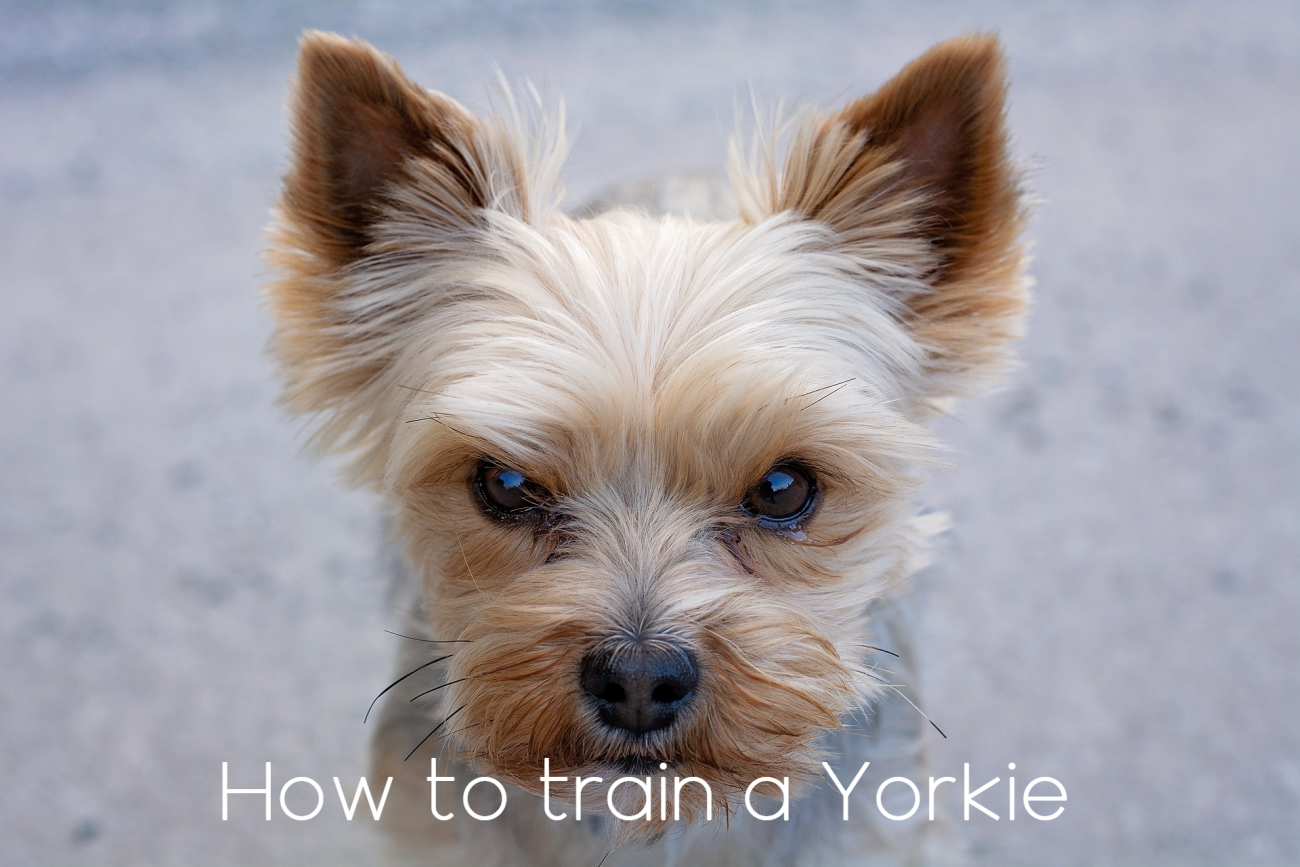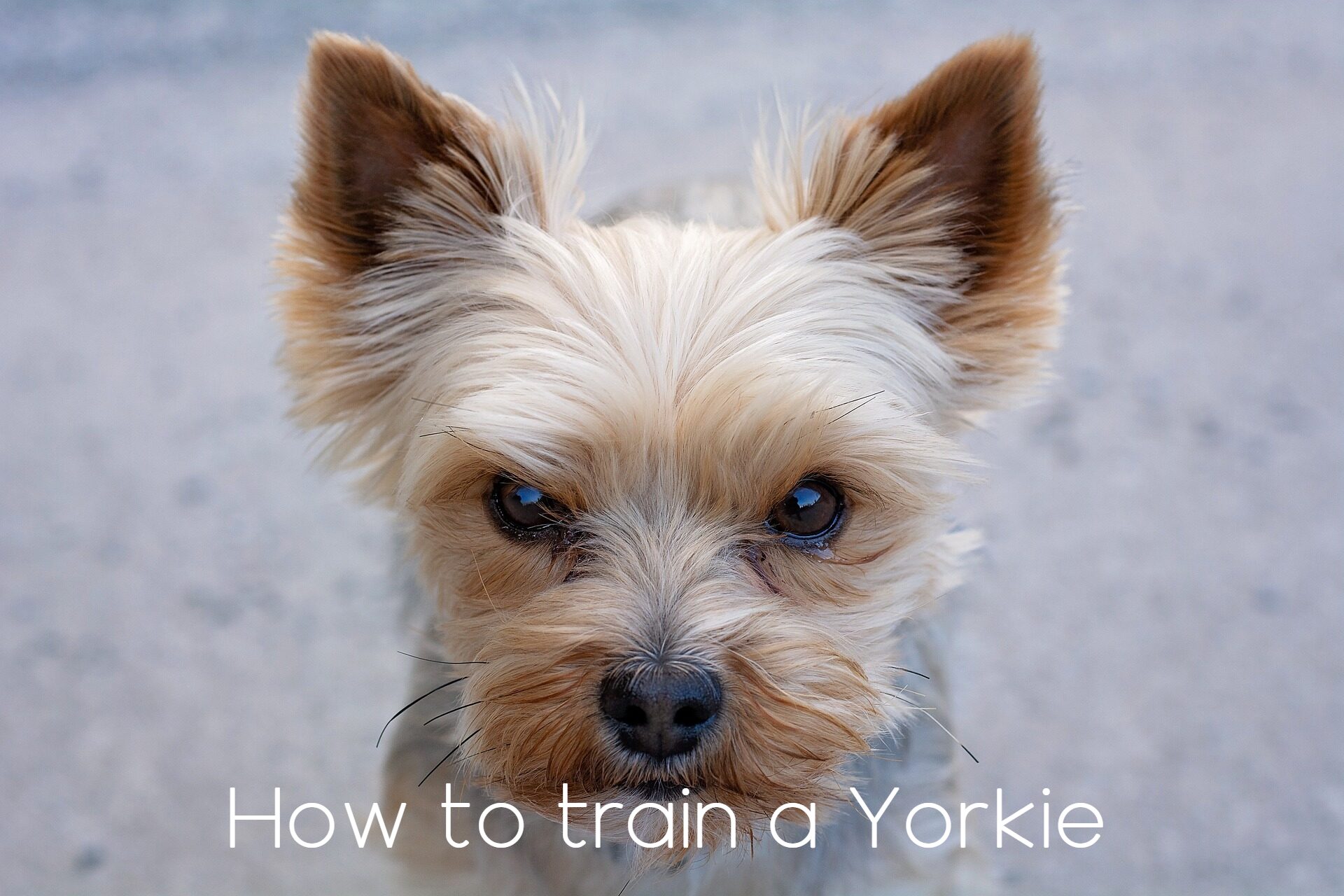
How to train a Yorkie
Regardless of what you may be trying to teach your Yorkie, there are certain general rules and guidelines that you should keep in mind. In this article, I will share my experience with what worked for me when I trained my Yorkie.
Be consistent in both words and actions
You should start with a clear training goal in mind before you start a training session. Don’t ever start with one command and then change your mind and change the training target partway through a session. You must carefully choose the words and actions that you are going to use to activate the command in question. If you decide the “Come” is the right word for that command, use it always. Do not slip and start using “Here, boy” instead. You should also make certain that the rest of the family also use the same word for that command. Not only should you use the same word each time, but you should also try to use the same tone of voice. Once you start an action during training, always follow it through to completion. If you are working on the “Come” command with a leash, always bring your Yorkie to you once you have issued the command. Don’t stop with your Yorkie half-way to you as they will become confused regarding what you want them to do. Try to get your Yorkie to perform the same action every time before you give praise. Don’t let your Yorkie get the idea that he can be praised for a job partially done.
Don’t try to train your Yorkie unless you have them under control
If your Yorkie is not completely trained, don’t try to give a command if there is any chance that he can simply ignore the command. If your Yorkie is rolling around with the kids in the backyard, he is not going to hear you say “Come” and if he does he will simply ignore you. When starting a training session, make sure that you are prepared to enforce your command. Issuing a command in a situation where your Yorkie is out of your control is only teaching them that it’s ok not to obey you.
Training sessions should be short
Yorkies and puppies in particular are somewhat similar to young children when it comes to attention span, but not the same. Puppies simply don’t have the attention span that human children possess. As much as we love our dogs, they possess only a small fraction of the intelligence of a human child. The result is that they have very short attention spans and are easily distracted. 10 to 15 minutes is about as long a dog of any age is going to pay attention or enjoy a single activity. If you force your dog to train for longer than his attention span, you will probably do more harm than good. He will start to make errors and not pay attention, and your temper will worsen. It is important that your Yorkie enjoys the training sessions. If they learn to dislike them, you will have difficulty teaching even the simplest of commands.
As stated before, consistency is important. Plan on training your Yorkie 10-15 minutes a day as often as possible. You will get far better results training a few minutes a day every day than trying to spend half of your Saturday in training. Choose a time and location where distractions are minimal. Try to make the time one in which your Yorkie is normally active. If you pick a time in which they are normally napping, you get about the same results as you would if someone woke you up at 3:00 am and started trying to teach you math. Possible, but not very productive.
Be patient, stay calm.
This shouldn’t require very much explanation. As stated previously, you must be consistent in actions and tone of voice. Getting angry will change your tone of voice and be counterproductive. It also may teach the dog to dislike the training sessions because they make his best friend mad at him. Training should be enjoyable for both you and the Yorkie. If you are in a bad mood before training–don’t train that day. Your dog will pick up on your mood and won’t concentrate on the tasks at hand. Don’t get overly concerned and upset if your dog does not make the progress that you wanted. That happens–you must deal with it calmly and patiently. Continue to train and be patient and your Yorkie will learn.
Be conservative with praise
You can praise your Yorkie with a treat, a loving word or phrase like “good dog!”, or with a physical petting action on their shoulders. Any of them work, but I suggest avoiding treats as it is a fast way to get an overweight Yorkie. The important thing to consider is that your dog must know that you approved of and are pleased with the action that they just performed. You do not want them to get so caught up in the praise that they completely forget what they just did to earn the praise. A kind word and a gentle pat or two on the shoulders is enough for your Yorkie to understand.
Always try to end the training session with success
You want your Yorkie to enjoy the session and be ready to come back for more. If the command upon which you are working isn’t working, finish with something that he has already learned and is good at performing.
Positive reinforcement usually works better than punishment
Once again, you must remember that dogs are not as smart as humans. In most situations they will not understand the correlation between the actions they performed that led to the punishment and the punishment itself. If you come home to find that your Yorkie has made a mess in the house, spanking the dog isn’t going to accomplish anything except create confusion and uncertainty in the dog. He is not going to understand what he did that was wrong.
When training commands, your Yorkie is working to receive an award from you in the form of praise. If you do not praise your Yorkie at the end of the action, it knows that it did not act correctly. Yorkie’s are very sensitive to tone of voice. If you catch your little one making a mess in the house, sternly saying “NO.” and taking him outside is enough. Spanking them will accomplish no more than making him fear you.
Training a Yorkie is not always easy, and can be quite time consuming. Yorkies are quite intelligent, however, and are capable of learning a great number of things if you will teach them.
Two additional forms of discipline suitable for Yorkies are 1. giving them a “time out” in a crate, and 2. ignoring them. Yorkies are very sociable dogs and prefer to be with you all the time. If your puppy is getting overactive, barking repeatedly, etc., you may discipline them by putting them in their crate for a short time. This is exactly equivalent to sending your child to his room. Lastly, Yorkies, like other dogs, will repeat behaviors for which they are rewarded. If you give your Yorkie a treat every time he barks, you will soon have a Yorkie that never stops barking.

